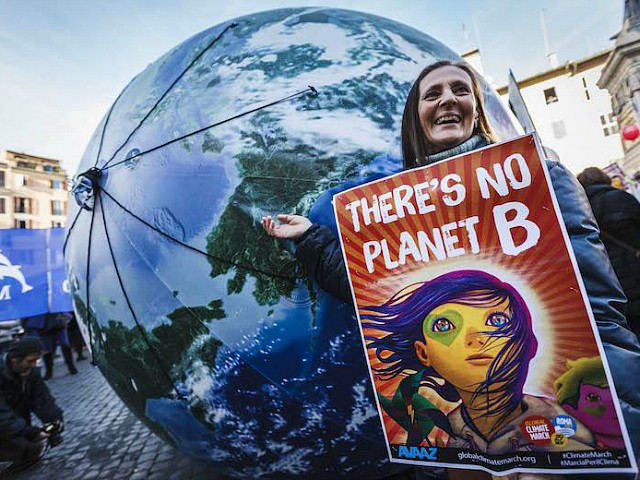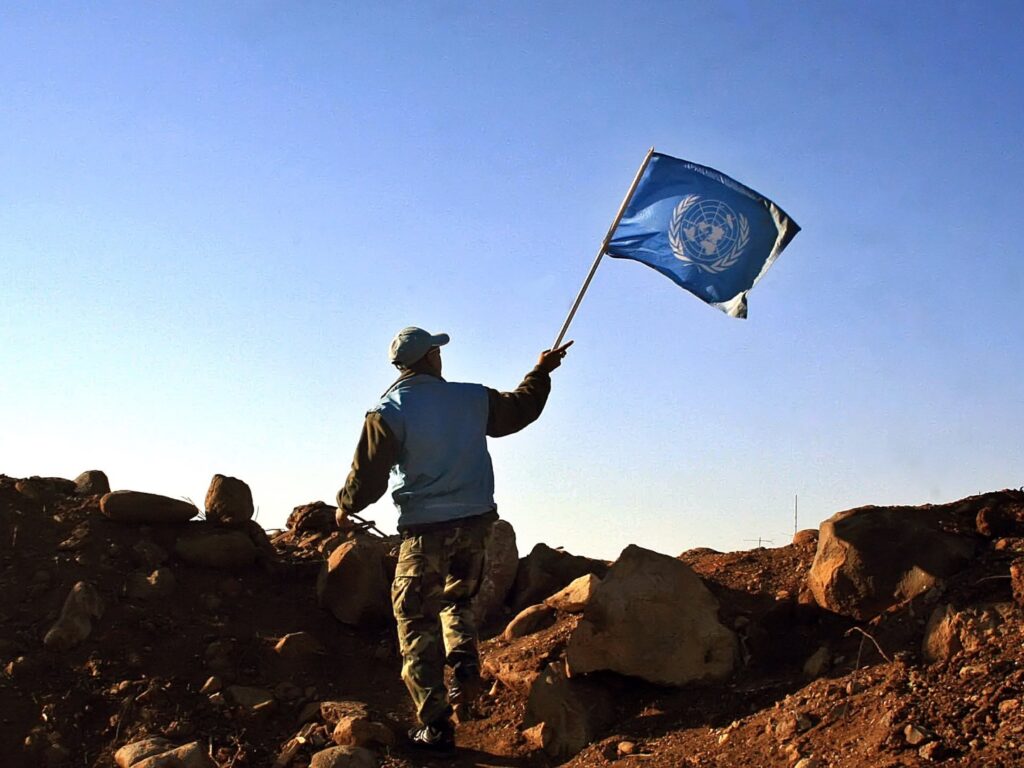Top News
Report: U.N. Using Climate ‘Credit’ Scheme to Hide Massive Carbon Emissions

Non-profit news agencies Mongabay and the New Humanitarian published a joint report on Wednesday that debunked the United Nations’ extravagant claims of “climate neutrality.”
What the U.N. is actually doing, according to the report, is buying millions of dollars worth of “carbon credits” to “offset” its substantial emissions. Some of the projects that are supposedly “offsetting” the U.N.’s emissions are actually damaging the environment — or even the health of human beings.
“Carbon credits” are basically a shell game in which carbon emitters buy “permits” to spew more carbon dioxide from industries supposedly reducing the amount of carbon in the atmosphere. Environmental regulations have turned the carbon credit market into a grotesque billion-dollar “industry” that does not actually produce anything — it merely shuffles paperwork so that agencies and corporations can claim they are “carbon neutral” even though they still have prodigious emissions.
Some climate activists are growing a bit skeptical of the carbon credit industry, which theoretically helps cleanse the atmosphere by subsiding carbon-reducing projects that might not otherwise be profitable. The report pointed to Doctors Without Borders as an example of an organization that has sworn off carbon credits altogether.
Secretary-General of the United Nations, Antonio Guterres speaks as he attends a session of the World Economic Forum (WEF) in Davos, Switzerland on January 18, 2023. (Photo by Dursun Aydemir/Anadolu Agency via Getty Images)
In practice, as Mongabay and the New Humanitarian claimed, some of those carbon credits “fail to meet high standards,” and the U.N. is not doing the climate movement any favors by purchasing dubious credits and setting a bad example:
Roughly 100 companies are responsible for more than 70% of the world’s greenhouse gas emissions, while a recent study of climate neutrality claims from 25 multinationals found most were overstated. British Airways and Delta Air Lines, for example, have faced particularly stringent criticism over their claims.
Still, climate researchers and environmental advocates say the UN’s offsetting practices undermine its leadership on efforts to slow the pace of global warming.
Aside from overseeing multiple climate treaties, the UN is also a steward in helping governments meet climate commitments under the Paris Agreement, organizing the annual COP climate conferences. This year’s COP28 starts on 30 November in Dubai.
The U.N. uses carbon credit sleight-of-hand to claim it has been very nearly carbon-neutral since 2018 — even though its agencies are actually pumping out carbon dioxide “roughly equal to the annual emissions of 1.5 million gasoline-powered cars.”
The only recent year in which the U.N. meaningfully reduced its actual emissions, rather than buying carbon credits to “offset” them, was during the pandemic year of 2020. The Mongabay/New Humanitarian report suggested that U.N. emissions are not actually declining because it keeps hiring more staffers, who tend to generate a lot of carbon by traveling.
The New Humanitarian also referred to its own 2021 research to argue that the U.N. simply fails to count a good deal of its emissions when it calculates its alleged “carbon neutrality,” like a dieter who decides the calories from Friday night pizza and beer simply do not count.
Tracking down the U.N.’s fishy carbon credit claims proved to be taxing work for investigators, as the U.N. is “largely exempt from regulatory oversight,” and it does not scramble to answer questions about its practices from skeptical reporters. Dozens of the entities selling carbon credits to the U.N. either refused to answer questions about their practices or claimed they lacked the documentation to respond in detail.

An Indian soldier waves the U.N. flag at the outskirts of the Lebanese village of al-Ghajar. (Photo by ALI DIA/AFP via Getty Images)
Mongabay and the New Humanitarian were able to determine that over 350,000 of the carbon credits purchased by the U.N. over the past decade came from projects that were “linked to reports of environmental destruction, forced displacement, or health problems in communities near the projects,” such as a waste-to-energy plant in India that was emitting harmful air pollution.
The U.N. World Food Program (WFP) bought thousands of carbon credits from a Brazilian hydropower plant that was accused of destroying forests and damaging biodiversity. In fact, a study found the plant’s deforestation more than wiped out the environmental benefits that supposedly allowed it to sell carbon credits.
The report cited reviews that found many of the other hydropower and wind projects selling carbon credits to the U.N. did not meet the standards for doing so — and very few such projects actually meet the emission reduction targets that were claimed in order to justify selling credits.
“I don’t know why the U.N. would still be buying wind and hydro,” sighed University of Pennsylvania climate researcher Joe Romm.
Romm pointed out that the U.N. has a habit of buying huge volumes of cheap, and very low-quality, carbon credits — the climate change equivalent of junk bonds. The sheer size of the multi-billion-dollar carbon credit industry has attracted some shady operators, and the cost of vetting those credits adds to their already tremendous cost.
Bloomberg News reported in June that a “major showdown is brewing over what counts as a carbon credit,” with the U.N. under heavy pressure to set higher standards that severely reduce profit from the lucrative industry.
Bloomberg noted that carbon offsets are currently a $2 billion industry — but they are expected to mushroom to a staggering $160 billion to $624 billion by the middle of the century, and one trillion dollars is not out of the question.
Read the full article here


















